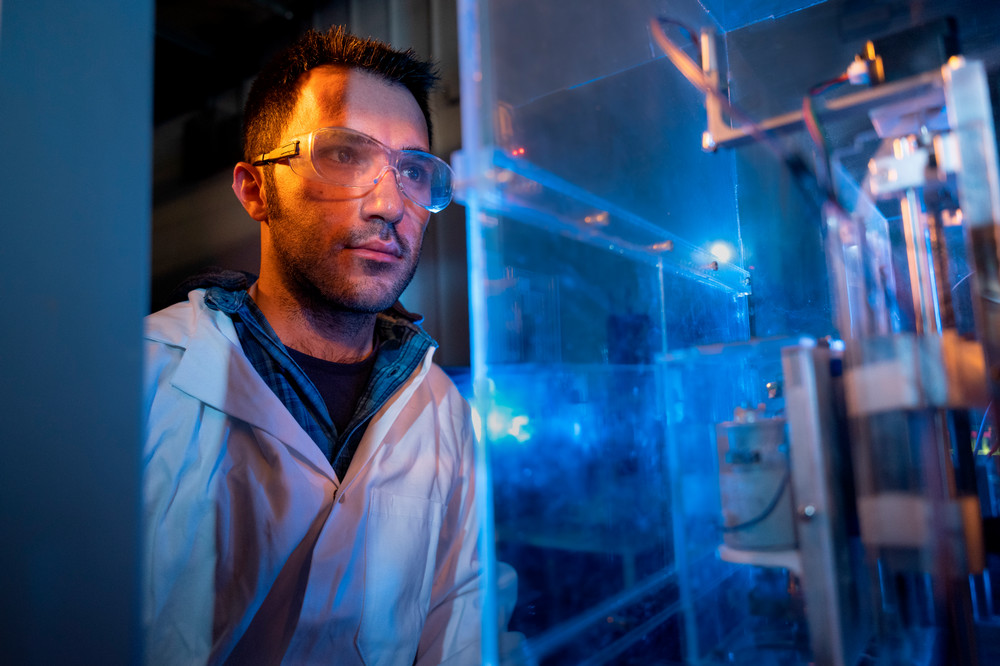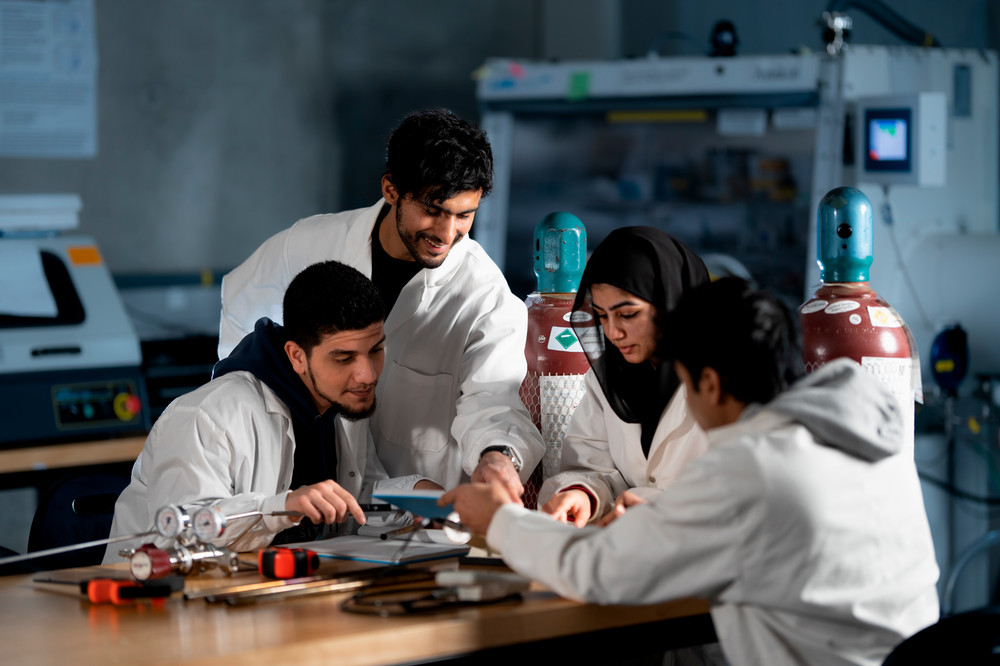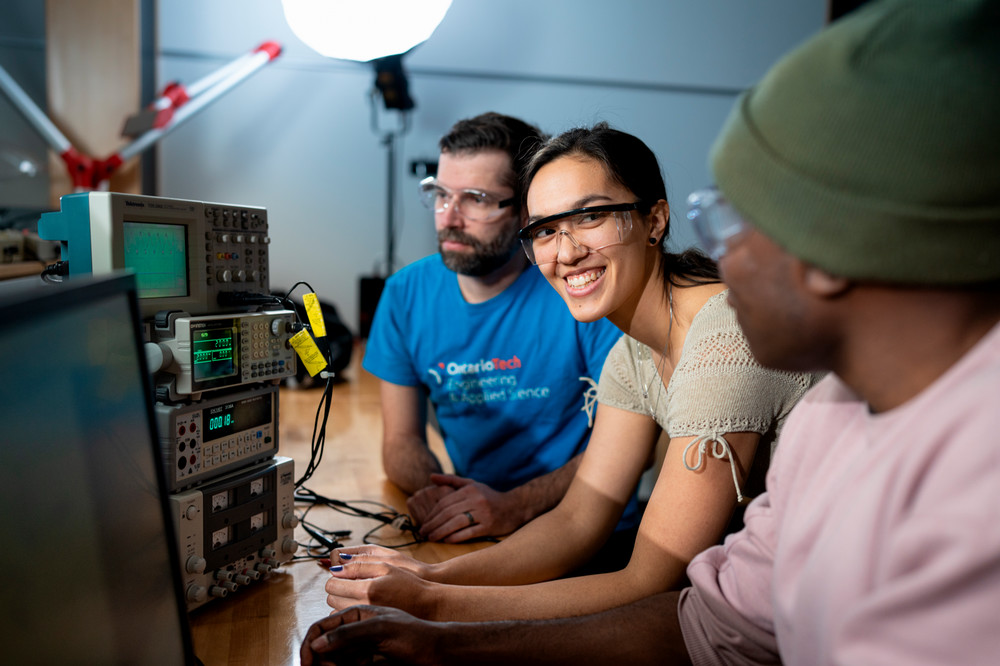Energy Engineering
Overview
 Energy Engineering is an interdisciplinary program that encompasses a variety of engineering fields including electrical, mechanical and nuclear. The program will contribute significantly to provincial, national and global objectives of transitioning to low-carbon economies and striving for ‘net-zero’ emissions and graduates will be qualified to work across the energy sector and support the energy transition in Ontario, Canada, and globally.
Energy Engineering is an interdisciplinary program that encompasses a variety of engineering fields including electrical, mechanical and nuclear. The program will contribute significantly to provincial, national and global objectives of transitioning to low-carbon economies and striving for ‘net-zero’ emissions and graduates will be qualified to work across the energy sector and support the energy transition in Ontario, Canada, and globally. The energy industry has demonstrated increased demand to include environmentally-conscious energy sources that focus on the efficient use of energy systems, as well as energy security and reliability. In this program, students will learn different aspects of energy systems including hydrogen, electrical, nuclear, renewable and energy storage.
To learn more, please visit the Energy Engineering web page.
* The Energy Engineering program will be reviewed for accreditation in 2026-2027, to coincide with the first graduating class, as per CEAB requirements.
Foundation year
All engineering students begin with a common foundation year, regardless of the program of study. During the foundation year, you will learn about the various engineering programs available.
Engineering and Management
There is a need for engineers with management skills. Complement the technical studies of your engineering program with business and management courses by pursuing the five-year Bachelor of Engineering and Management (Honours) program.
Women in Engineering
A multi-year support program to help female engineering students explore opportunities and careers, gain experience in the workforce, make a successful transition to a career in engineering and find lifelong success in a professional engineering career. View more information about our Women in Engineering program.
Learning environment
Students have access to new, modern buildings, libraries and innovative labs, including:
- ACE Facilities
- Energy Systems and Nuclear Science Research Centre (ERC)
- Jeffery Boyce Engineering Innovation and Design Studio
- Ontario Power Generation (OPG) Engineering Building
- Software and Informatics Research Center (SIRC)
Admissions
Admissions
Current Ontario secondary school students must complete the Ontario Secondary School Diploma (OSSD) with six 4U or 4M credits including English (ENG4U) with a minimum grade of 60 per cent, Advanced Functions (MHF4U), Calculus and Vectors (MCV4U), Chemistry (SCH4U) and Physics (SPH4U). In addition, a combined minimum 70 per cent average in prerequisite math and science courses is required, with no grade below 60 per cent.
Note: Admission is competitive. The specific average or standing required for admission varies from year to year. Students are selected by taking into consideration a wide range of criteria including school marks, distribution of subjects taken and performance in subjects relevant to the academic program. Possession of the minimum requirements does not guarantee acceptance. Preference will be given to applicants with the best qualifications.
| Last year's cut-off | 70 per cent |
|---|---|
| Expected cut-off | Mid-70s |
The application process and important dates/deadlines are outlined on our admissions website:
• Ontario secondary school applicants
• Ontario secondary school graduates
• Canadian out-of-province high school applicants
• International applicants
• Mature applicants (over 21 and never attended post-secondary)
• Transfer applicants
• General Arts and Science (GAS) applicants
• Home-schooled applicants
Career opportunities
- Electrical engineer
- Energy systems engineer
- Industrial engineer
- Project engineer
- Systems engineer
- Graduate studies in Engineering and Applied Sciences disciplines
Experiential learning
The Faculty of Engineering and Applied Science offers optional engineering internship and co-op work terms to provide students with the opportunity of gaining meaningful engineering experience and exploring possible careers.
Did you know?
-
Sample courses
- Energy and Environmental Impacts
- Electro-Mechanical Energy Conversion
- Future Role of Nuclear Energy
- Hydrogen and Fuel Cells
- Power Systems
- Solar Energy
- Sustainable Community Energy Systems
- Wind and Hydro Energy








